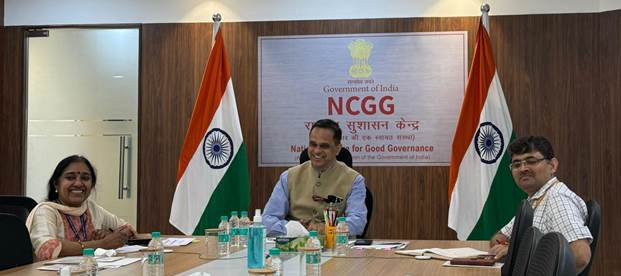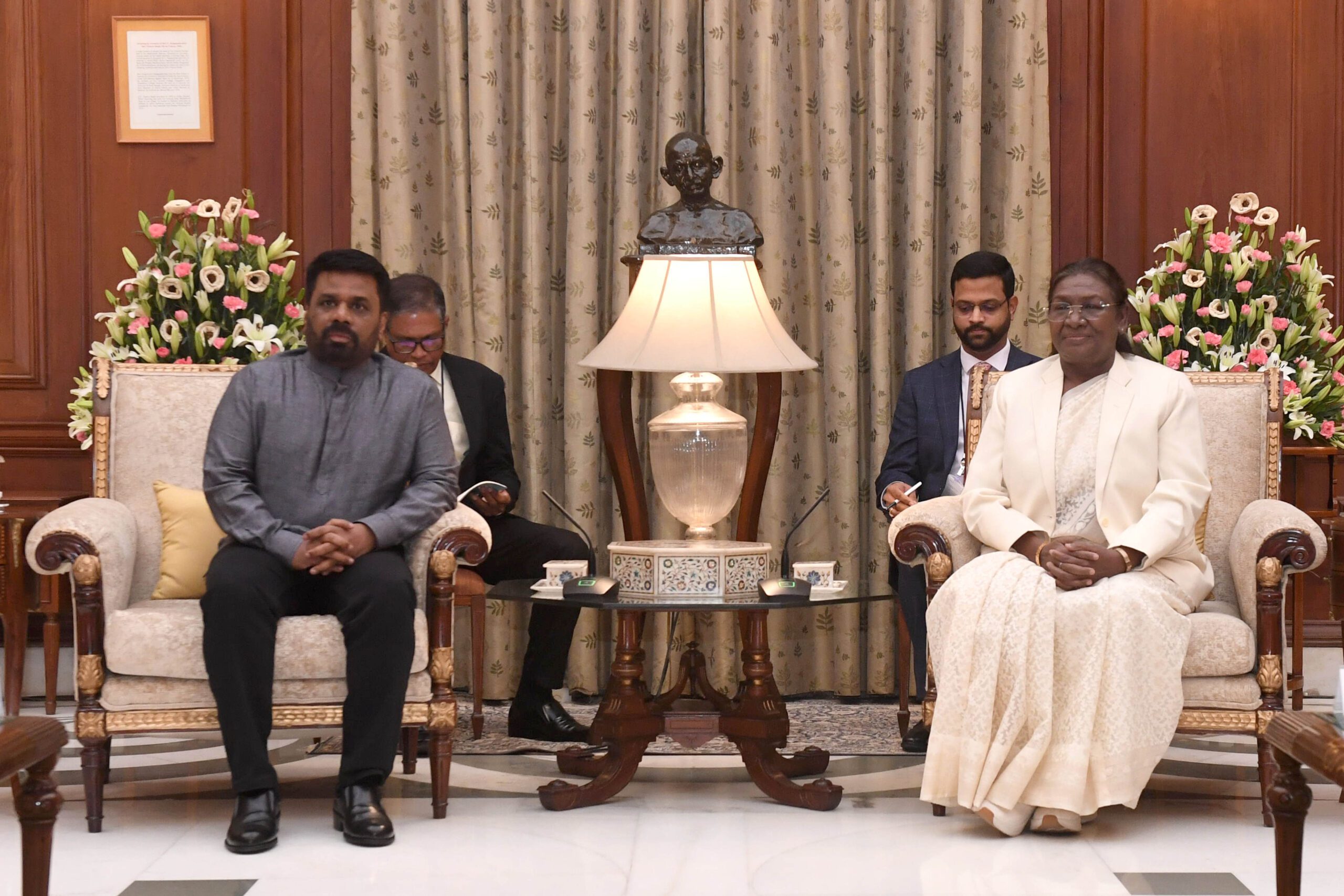NCGG Launches First Advanced Leadership Development Program for Latin American and Caribbean Countries

NCGG Launches First Advanced Leadership Development Program for Latin American and Caribbean Countries. The National Centre for Good Governance (NCGG) has embarked on a significant initiative by organizing its 1st Advanced Leadership Development Program on Public Policy and Governance for Latin American and Caribbean countries. This landmark program, held from September 2 to September 13, 2024, has brought together 22 civil servants from 10 nations. The program is a major milestone in international capacity-building efforts, focusing on strengthening governance and public policy.
NCGG Launches First Advanced Leadership Development Program for Latin American and Caribbean Countries
NCGG Participation from Multiple Nations
The two-week program saw the participation of civil servants from Argentina, Costa Rica, El Salvador, Guyana, Honduras, Jamaica, Paraguay, Peru, St. Kitts & Nevis, and Suriname. The initiative underscores India’s commitment to sharing its expertise in governance and public administration with other regions of the world. The program is designed to foster knowledge exchange, strengthen diplomatic ties, and promote best practices in governance among the participating nations.
Key Highlights:
- 22 civil servants from 10 Latin American and Caribbean countries.
- Focus on governance and public policy.
- A two-week program running from September 2 to September 13, 2024.
Interaction with Officials and Governance Models
On the first day of the program, Secretary DARPG and DG NCGG, Shri V. Srinivas interacted with the participants. During this interaction, the commonalities between India’s governance models and those of the Latin American countries were highlighted. Shri Srinivas emphasized the saturation approach to implementing priority sector schemes, a hallmark of India’s all-encompassing development model.
Key Discussion Points:
- India’s governance model: “Maximum Governance – Minimum Government.”
- The Panch Pran of Amrit Kaal, which emphasizes removing colonial mindsets and fostering a sense of duty and unity among citizens.
- The focus on empowering citizens and the next-generation infrastructure and innovation for Viksit Bharat@2047.
India’s governance model, driven by technological advancement and innovation, serves as an example for other nations striving for inclusive and transparent governance. The interaction also focused on the nation’s shift towards next-generation reforms that empower citizens, create cutting-edge infrastructure, and promote New Age Technologies.
Topics Covered in the Program
The two-week Advanced Leadership Development Program will cover various topics crucial to public policy, governance, and technology-driven growth. These areas are carefully chosen to provide the participants with a holistic understanding of India’s successful governance models.
Key Topics:
- Aadhar Card as a tool for good governance.
- Skill India: Policies and practices for empowering citizens.
- Vigilance Administration and the fight against corruption.
- India’s Fiscal and Monetary Policy.
- Sustainable Development Goals (SDGs) and India’s approach to achieving them by 2030.
- Urban Governance and Sustainable Cities: Addressing the challenges of urbanization.
- Food Security and Agriculture: Key insights into India’s agricultural policies.
- PM Gati Shakti: Driving infrastructure development.
- Holistic Healthcare: Emphasizing traditional medicine like Ayurveda.
- E-Governance and Digital Public Service Delivery: Leveraging technology for better public services.
Study Tours and Exposure Visits
Apart from classroom sessions, the program includes study tours and exposure visits that offer practical insights into India’s governance systems. Participants will visit several institutions that demonstrate the country’s efforts in promoting innovation and sustainable development.
Key Visits:
- Forest Research Institute (FRI): Exposure to forest management and environmental sustainability.
- District Administration of Gautam Buddha Nagar, Uttar Pradesh: Insight into local governance.
- International Solar Alliance: Learning about global efforts in promoting solar energy.
- National Institute of Solar Energy: Showcasing India’s advancements in renewable energy.
- India International Institute of Democracy and Election Management: Insights into India’s electoral systems.
- Heritage Visit to Taj Mahal, Agra: A glimpse into India’s rich cultural heritage.
These visits will offer participants hands-on experiences and exposure to India’s robust governance infrastructure, allowing them to take home practical knowledge that can be applied in their respective countries.
India’s Governance Model: A Global Example
India has made great strides in governance, particularly through initiatives like Digital India and PM Gati Shakti. These initiatives aim to harness the power of technology for governance, making public services more accessible, transparent, and efficient. The GeM (Government e-Marketplace) platform, which promotes transparency in procurement processes, is a prime example of how digital solutions can revolutionize governance.
Key Governance Models Presented:
- Maximum Governance – Minimum Government: Emphasizing minimal interference in citizens’ lives while ensuring the effective delivery of public services.
- Digital India: Transforming governance through digital solutions.
- PM Gati Shakti: Accelerating infrastructure development for economic growth.
- Procurement Reforms through GeM: Ensuring transparency in government procurements.
- Zero Tolerance to Corruption: Highlighting India’s commitment to eliminating corruption.
- Mission Karmayogi: A capacity-building program aimed at enhancing the skills of public officials.
India’s focus on capacity building through Mission Karmayogi and its commitment to eliminating corruption through transparent processes provide a template for other nations. By sharing these practices with Latin American and Caribbean countries, India is playing a crucial role in global governance reform.
Capacity Building Supervision and Coordination
The entire program is being carefully coordinated by a dedicated team of experts from NCGG, ensuring that the participants get the most out of the experience. The program is led by Dr. Himanshi Rastogi, the Course Coordinator, along with other key members including Dr. Mukesh Bhandari, Associate Course Coordinator, and Shri Sanjay Dutt Pant, Program Assistant.
Key Team Members:
- Dr. Himanshi Rastogi, Course Coordinator.
- Dr. Mukesh Bhandari, Associate Course Coordinator.
- Shri Sanjay Dutt Pant, Program Assistant.
- Dr. Zaid Fakhar, Consultant, NCGG.
- Ms. Megha Tomar, Young Professional, NCGG.
- Smt. Prisca Poly Mathew, Chief Administrative Officer & Consultant, NCGG.
- Dr. A. P. Singh, Associate Professor, NCGG.
- Shri S. K. Pandey, Director, DARPG.
Conclusion
The 1st Advanced Leadership Development Program for Latin American and Caribbean countries by NCGG marks a new chapter in India’s international engagement in the field of governance and public policy. By sharing its experiences and innovations, India is helping to build a network of nations committed to improving governance systems. This program not only strengthens diplomatic ties but also paves the way for future collaborations in capacity building and governance reforms.
With a focus on digital solutions, maximum governance, and zero tolerance for corruption, India’s governance models serve as a beacon for other nations striving for inclusive and transparent governance. The knowledge shared in this program will help the participating nations in their efforts to implement effective governance practices, ultimately improving the quality of life for their citizens.











